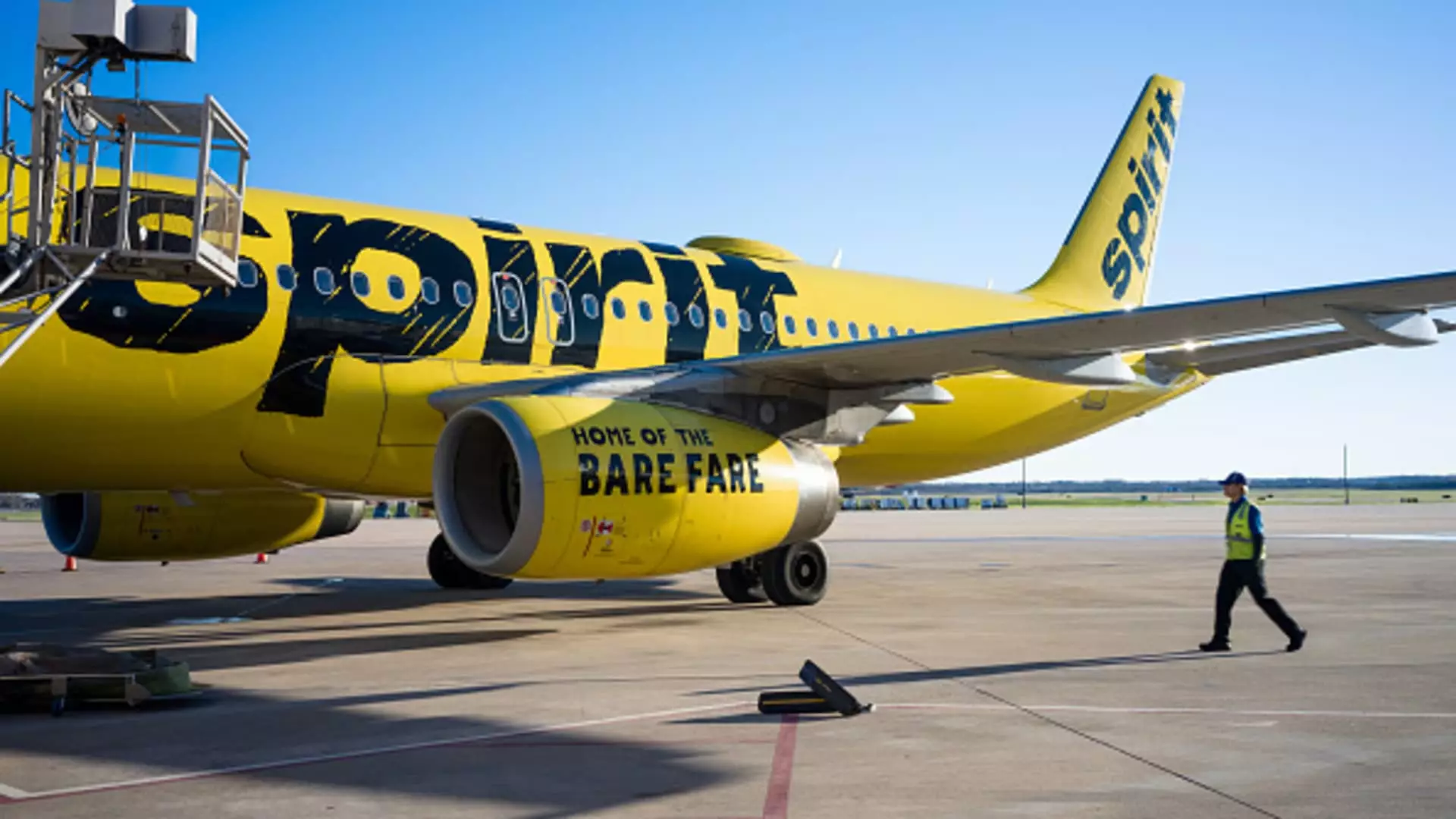Spirit Airlines recently announced its decision to defer deliveries of new Airbus planes, leading to a ripple effect that includes the furlough of approximately 260 pilots. This strategic move is aimed at boosting the airline’s liquidity, with CEO Ted Christie emphasizing the necessity of these actions for ensuring a strong and profitable future for Spirit. By pushing back the delivery of Airbus planes scheduled for the second quarter of 2025 through the end of 2026 to 2030 and 2031, Spirit hopes to increase its liquidity by approximately $340 million over the next two years.
In the face of a challenging competitive landscape exacerbated by the grounding of many of its Airbus planes due to a Pratt & Whitney engine recall, Spirit has been navigating a series of obstacles to secure its financial stability. A notable setback was the collapse of its planned acquisition by JetBlue Airways earlier this year following a ruling that deemed the deal anti-competitive. As a result, Spirit has been searching for alternative solutions to fortify its position in the market and reassure investors of its long-term viability.
The announcement of pilot furloughs, set to take effect in September, reflects the difficult decisions Spirit has had to make to adapt to the evolving circumstances in the aviation industry. The Air Line Pilots Association, the union representing Spirit pilots, is exploring voluntary measures to mitigate the impact of these furloughs on its members. With an excess of pilots relative to its current operational needs compounded by the retirement of its A319 fleet and ongoing engine issues, the airline is confronted with the challenge of aligning its workforce to match the demands of its operations.
Spirit’s experience is not unique, as other airlines have also had to make adjustments in response to the rapidly changing dynamics of the market. United Airlines, for instance, has offered unpaid time off for pilots due to delays in plane deliveries from Boeing. The scarcity of aircraft has prompted airlines to reconsider their hiring and training strategies, signaling a shift from the pilot shortage that was prevalent during the resurgence of travel demand post-pandemic.
As Spirit grapples with the ramifications of its recent decisions, including the pilot furloughs and Airbus deferrals, the airline is focused on regaining stability and charting a course for sustainable growth. The forthcoming publication of its financial outlook for the quarter and full year will provide stakeholders with valuable insights into Spirit’s strategic direction and prospects for the future. By proactively addressing its immediate challenges and leveraging its core strengths, Spirit aims to emerge stronger from this period of turbulence in the aviation industry.

